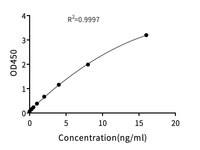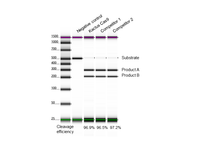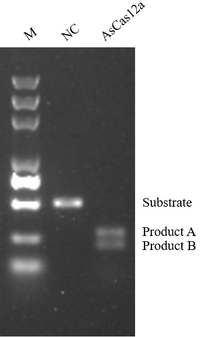New advances in CRISPR gene therapy drugs
By Mallory Griffin
On April 3, 2023, Vertex Pharmaceuticals and CRISPR Therapeutics announced the completion of the rolling biologics license application (BLAs) to the FDA for Exa-cel, intended for the treatment of sickle cell disease (SCD) and beta-thalassemia (TDT). Exa-cel is poised to become the world's first approved CRISPR gene editing therapy.
Fetal hemoglobin (HbF, α2γ2) is a form of hemoglobin present during embryonic development. After birth, the BCL11A regulatory factor binds to the promoter and suppresses the expression of gamma-globin, gradually replacing HbF with adult hemoglobin (HbA, α2β2). Patients with SCD and TDT exhibit abnormal expression of beta-globin, and gene editing techniques can reactivate HbF expression. Exa-cel utilizes CRISPR-Cas9 gene editing technology to modify the BCL11A gene in the patient's CD34+ cells in vitro, which are then infused back into the body to increase HbF expression, thereby achieving the therapeutic goal.

Figure 1. Mechanism of Exa-cel regulation [1].
CRISPR gene editing therapies that have entered clinical trials:
|
Drug Name |
Company |
Enzyme |
Disease Target |
|
Exa-cel |
Vertex |
CRISPR-Cas9 |
Sickle cell disease and B-thalassemia |
|
EDIT-301 |
Editas Medicine |
CRISPR-Cas12a |
Sickle cell disease and B-thalassemia |
|
NTLA-2001 |
Intellia Therapeutics |
CRISPR-Cas9 |
transthyretin amyloidosis |
|
ET-01 |
Edigene |
CRISPR-Cas9 |
B-Thalassemia |
|
RM-001 |
Reforgene |
CRISPR-Cas9 |
B-Thalassemia |
|
BRL-101 |
BRL Medicine |
CRISPR-Cas9 |
B-Thalassemia |
|
BD111 |
BD Gene Therapeutics |
CRISPR-Cas9 |
Herpes simplex virus keratitis |
Cas9 nuclease is one of the most commonly used gene editing enzymes, which can be used to modify genome sequences. KACTUS has independently developed a GMP-grade Cas9 nuclease, which has completed the FDA Drug Master Files filing (DMF #036578), and assisted customers in obtaining IND approval.
KACTUS offers GMP-Grade Cas9
- Localized GMP-Grade Cas9 Nuclease
- Production according to cGMP guidelines
- Quality controlled standard release testingIn vitro and intracellular activity verification to ensure high protein activity
- Good batch-to-batch stability and consistency
- Manufacturing Executiong System (MES) - digital production management system
- Sterility testing
- Accelerated & long-term stability studies
- Regulatory application documents for cell & gene therapies can be provided
GMP-Grade Cas9 Nuclease Validation Data
High Cleavage Activity In Vitro

Figure 2. Three batches of KACTUS Cas9 nuclease were analyzed for cleavage efficiency using in vitro DNA substrate cleavage experiments. As shown in the figure, the in vitro cleavage efficiency of the three batches of Cas9 nucleases is consistent.
High Editing Activity In Vivo

Figure 3. Three batches of Kactus Cas9 nuclease were used for gene knockout of 293T cell line. As shown in the figure, the gene knockout efficiency of the three batches of Cas9 nuclease at the cellular level is basically the same.
Cas9 ELISA Kit
In ex vivo gene therapy, after the cells are modified by the CRISPR/Cas9 system, the residual Cas9 nuclease in the cells needs to be detected before being transfused back into the human body. KACTUS has carefully developed a highly sensitive and specific residue detection kit, CRISPR/Cas9 Nuclease ELISA Kit.

Figure 4. CRISPR/Cas9 Nuclease ELISA Kit standard curve drawing, the detection range is 0.25ng/ml-16ng/ml, and the sensitivity can reach 0.125ng/ml.
Order Now or Request Sample
| Product | Grade | Catalog # |
| Cas9 Nuclease | GMP-Grade | GMP-CAS-EE110 |
| Cas12a Nuclease | GMP-Ready | CAS-EE121 |
| Cas9 ELISA Kit | Research-Grade | CAS-MM00B |












